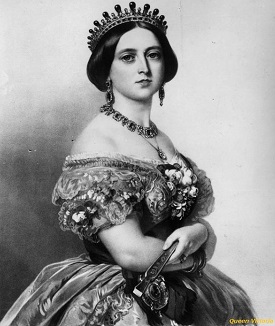
- Modern Indian History - Home
- Decline of Mughal Empire
- Bahadur Shah I
- Jahandar Shah
- Farrukh Siyar
- Muhammad Shah
- Nadir Shah’s Outbreak
- Ahmed Shah Abdali
- Causes of Decline of Mughal Empire
- South Indian States in 18th Century
- North Indian States in 18th Century
- Maratha Power
- Economic Conditions in 18th Century
- Social Conditions in 18th Century
- Status of Women
- Arts and Paintings
- Social Life
- The Beginnings of European Trade
- The Portuguese
- The Dutch
- The English
- East India Company (1600-1744)
- Internal Organization of Company
- Anglo-French Struggle in South India
- The British Conquest of India
- Mysore Conquest
- Lord Wellesley (1798-1805)
- Lord Hastings
- Consolidation of British Power
- Lord Dalhousie (1848-1856)
- British Administrative Policy
- British Economic Policies
- Transport and Communication
- Land Revenue Policy
- Administrative Structure
- Judicial Organization
- Social and cultural Policy
- Social and Cultural Awakening
- The Revolt of 1857
- Major Causes of 1857 Revolt
- Diffusion of 1857 Revolt
- Centers of 1857 Revolt
- Outcome of 1857 Revolt
- Criticism of 1857 Revolt
- Administrative Changes After 1858
- Provincial Administration
- Local Bodies
- Change in Army
- Public Service
- Relations with Princely States
- Administrative Policies
- Extreme Backward Social Services
- India & Her Neighbors
- Relation with Nepal
- Relation with Burma
- Relation with Afghanistan
- Relation with Tibet
- Relation with Sikkim
- Relation with Bhutan
- Economic Impact of British Rule
- Nationalist Movement (1858-1905)
- Predecessors of INC
- Indian National Congress
- INC & Reforms
- Religious & Social Reforms
- Religious Reformers
- Women’s Emancipation
- Struggle Against Caste
- Nationalist Movement (1905-1918)
- Partition of Bengal
- Indian National Congress (1905-1914)
- Muslim & Growth Communalism
- Home Rule Leagues
- Struggle for Swaraj
- Gandhi Assumes Leadership
- Jallianwalla Bagh Massacre
- Khilafat & Non-Cooperation
- Second Non-Cooperation Movement
- Civil Disobedience Movement II
- Government of India Act (1935)
- Growth of Socialist Ideas
- National Movement World War II
- Post-War Struggle
- Clement Attlee’s Declaration
- Reference & Disclaimer
Relations with Princely States
Before 1857, British had availed themselves of every opportunity to annex princely states. The Revolt of 1857 led the British to reverse their policy towards the Indian States.
Most of the Indian princes had not only remained loyal to the British but had actively assisted in suppressing the Revolt.
Canning declared in 1862 that the Crown of England stood forward, the unquestioned Ruler and Paramount Power in all India. Princes were made to acknowledge Britain as the paramount power.

In 1876, Queen Victoria assumed the title of the Empress of India to emphasize British sovereignty over the entire Indian subcontinent.
Lord Curzon later made it clear that the princes ruled their states merely as agents of the British Crown. The princes accepted this subordinate position and willingly became junior partners in the Empire because they were assured of their continued existence as rulers of their states.
As the paramount power, the British claimed the right to supervise the internal government of the princely states. They not only interfered in the day to day administration through the Residents but insisted on appointing and dismissing ministers and other high officials.
After 1868, the Government recognized the adopted heir of the old ruler and in 1881, the state was fully restored to the young Maharajah.
In 1874, the ruler of Baroda, Malhar Rao Gaekwad, was accused of misrule and of trying to poison the British Resident and was deposed after a brief trial.